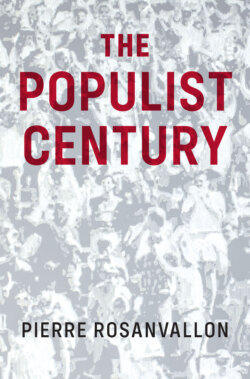Читать книгу The Populist Century - Pierre Rosanvallon - Страница 23
3 A MODE OF REPRESENTATION: A LEADER EMBODYING THE PEOPLE
ОглавлениеPopulism exalts a people as one body, a people bound together by its rejection of elites and oligarchies. This people also vilifies a political caste that it accuses of defending its own interests and of having lost any representative character. Hence the rejection of the political party structure, which is associated with rote speechifying and governance arrangements dissociated from reality; the party structure is also condemned for being paralyzed by incessant struggles for influence among rival groups. Hence, too, the preference for a different type of political organization, the “movement.” In addition to their original claim that they bring new blood into public life, populist movements are thus structurally distinguished from parties. Whereas parties were ideally conceived as the orchestrated expression of specific groups, whether these were defined socially, territorially, or ideologically, movements claim to want to bring all of society together.1 It was easy enough to see parties as representative of society because they emanated from well-defined existing realities (workers, farmers, craftsmen, businessmen, members of religious communities, and so on). Populist movements appear in a different light. First of all, they are constituted in more negative terms, through an accumulation of rejections and condemnations. At the same time, the people for whom they purport to speak has an increasingly nebulous character. The decline of political parties is linked in part to that reality, moreover. Not only are the parties victims of their rootedness in the past and their own ossification, but they no longer have a firm foothold in a society that has radically changed, a society in which social conditions are increasingly fragmented.2 In this context, a favorable echo of the populist message has emerged, for its globalization has led to the sense that commonalities could be produced within such fragmentation. But the denunciatory discourse of populism does not suffice to compensate for the deficit in representation that characterizes contemporary democracies. Hence the key role played by populist leaders as they strive to flesh out a coherent message.
